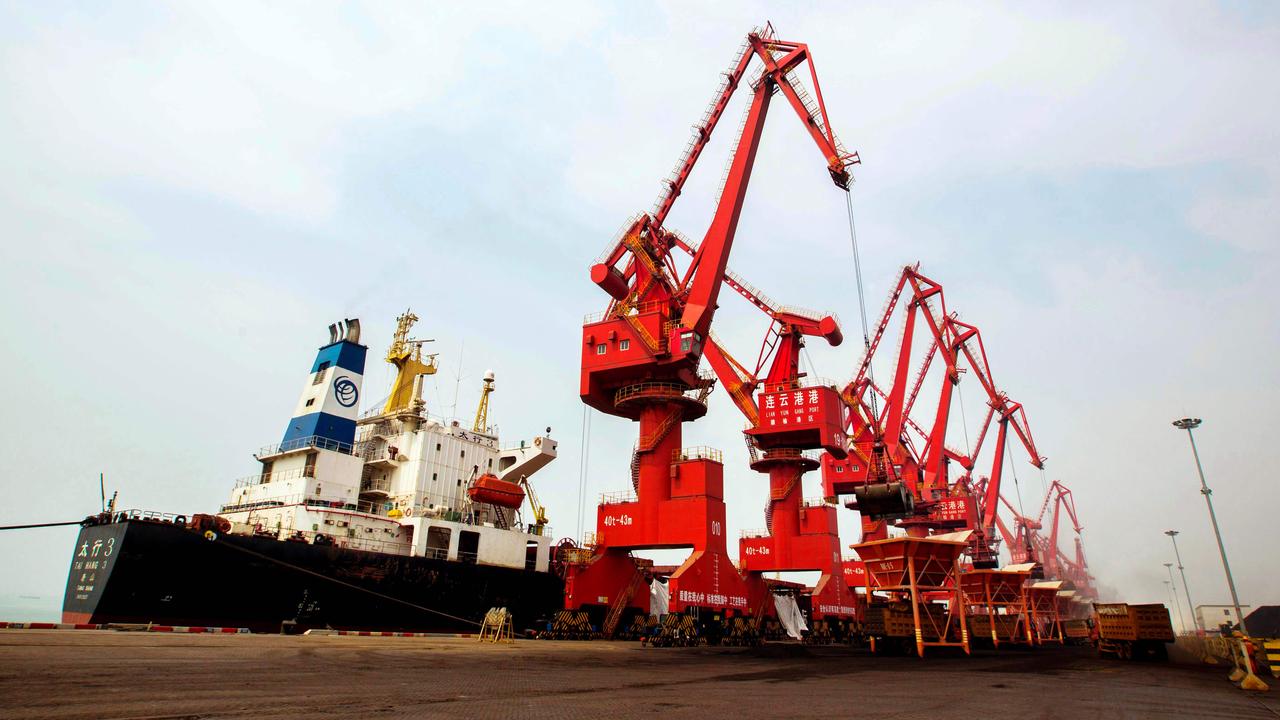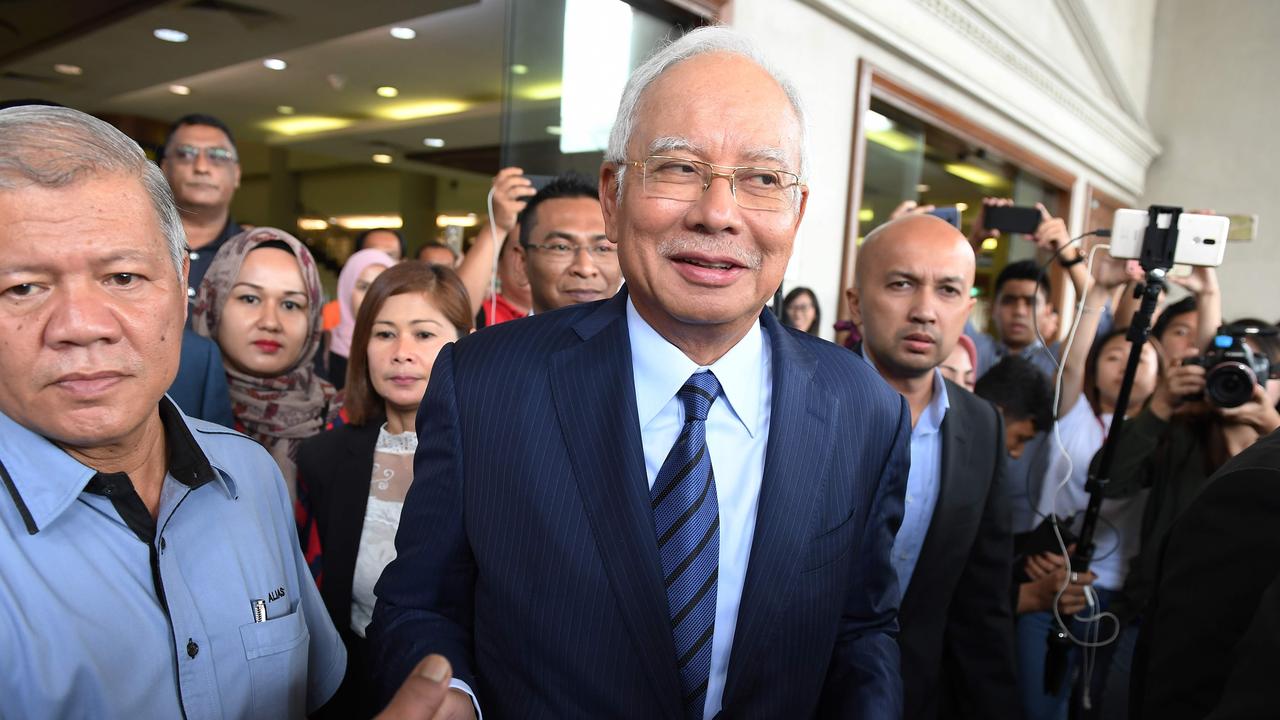China’s sick of handling the world’s rubbish
China is no longer happy to be the West’s garbage dump.
It isn’t only Western concepts like Marxism or capitalism that China recycles — or superannuated Western politicians including a clutch of Australians of both stripes and, last week in Beijing, Britain’s David Cameron.
It’s also the West’s physical waste products.
After grains and soybeans, and Boeing planes, the biggest category of American exports to China, worth about $7.5 billion a year, is trash and scrap metal.
But from January 1, Beijing has halted the import of 24 categories of such waste, chiefly plastics, as a component of its new “National Sword” program against foreign garbage. That will force Australia to find a new home for more than $500 million worth of rubbish, which it usually sells to China.
China feels it is accumulating more than enough of its own rubbish — generating about a third of global plastic waste — to keep acting as a global dumping ground.
The issue serves as a powerful pointer to the ways in which globalisation keeps evolving. All the players surfing international channels need to be “awake” to the changing needs of their foreign partners, or they’ll be left stranded.
This underlines a shift in China’s role, from a cog in the production chain to an owner of brands and of whole value chains, a crucial consumer, and increasingly a developer of new products and whole categories of products.
The January 1 ban provided a wake-up call in quite a few places.
In New Zealand, it led the front pages of newspapers that otherwise rarely cover international news seriously.
China’s move is one to which it’s hard to object too volubly.
If New Zealand wants to maintain its image as the ultimate in greenness and cleanliness, it will have to learn to cope with its own levels of waste, by slashing the amount of rubbish generated or by working out new ways to manage the waste, or both.
Other countries are facing the same challenge. Of course, so is China itself. It’s not new for authorities to try to cope with waste and with the prospect of endless landfill by burning the stuff.
But in China they’ve developed a technology to burn vast amounts at a high temperature and siphon off the energy from that process into the power grid.
Shenzhen is one of the cities that has licensed such a plant, but not everyone is comfortable living or working in the vicinity.
Shenzhen began life as a small town 35 years ago. Now it is a city of 11 million. And from being a site of low-end labour-intensive factories, akin to England’s industrial north in the 19th century, Shenzhen has developed into a sophisticated hi-tech city, a global capital of smartphones and drones, populated to an extent by hipsters not entirely happy about waste dumps.
Neighbouring Hong Kong has long profited from being a transhipment point for waste exports to China.
Those involved in that business in Hong Kong are also having to rethink their future — as that city also must reconsider its handling of the waste from its seven million inhabitants.
This trend in Chinese strategy won’t be wound back any time soon. It comes directly from President Xi Jinping, who will be in power one way or another for at least another decade, and who is surely in possession of survey data showing that environmental issues are high on Chinese people’s agendas.
In previous decades, officials have been rewarded substantially according to the pace of growth over which they have presided in their regions or sectors.
Beijing tried and failed to inject a green element by rewarding them according to some environmental indices. Too complicated, and too easily tampered with.
Instead, there are a couple of new ways in which officials are being given the message.
One is by stick rather than carrot — providing punishment if officials preside over areas where annual “mass incidents”, public protests, exceed a set maximum. Those that don’t relate to illegally confiscated land are often triggered by unacceptable pollution.
Another is by monitoring environmental statistics, leading to reviews if the figures seem beyond the expected — and punishing officials who tamper with pollution monitoring equipment.
Brad Potter, the head of Australian equities at Nikko Asset Management, has reported from a recent visit to China that, starting this year, “officials leaving a position will also have their records on natural resource management and environmental protection audited, meaning they will be held accountable post their departure”.
The implications are far reaching, including that closures of dirty and illegal factories will be commonplace and leniency for polluters will disappear given the political pressure from the top.
Much of the steel capacity cuts in 2016 were driven by such factors, with closures that were then temporary starting to become permanent. Less polluting electric arc furnaces are being installed in steel mills, for instance, to boost their share of total production beyond the present 6-10 per cent.
Potter and other visitors have been impressed by the blue skies over Beijing this winter.
The government, he points out, has the political aspiration of cutting emissions by 50-70 per cent over the next decade. This may be harder to achieve while economic growth over 6 per cent is still being sought. But it would be unwise to bet against success.
The key “pollution transition zone” in northern China, around Beijing, generates 25 per cent of the country’s GDP and 28 per cent of polluting emissions, but has just 7 per cent of the land area.
There are collateral victims in the process of cleaning this up. People are losing jobs. Families are freezing without coal to heat homes. Children are shivering in schools. But in time gas and other new energy sources will be deployed.
Potter is convinced that as this happens “the economy will slow and China will transition to a more balanced and environmentally friendly country”.
And as a warming post script, “demand for high-grade iron ore, coal and LNG from Australia will remain high”.




To join the conversation, please log in. Don't have an account? Register
Join the conversation, you are commenting as Logout